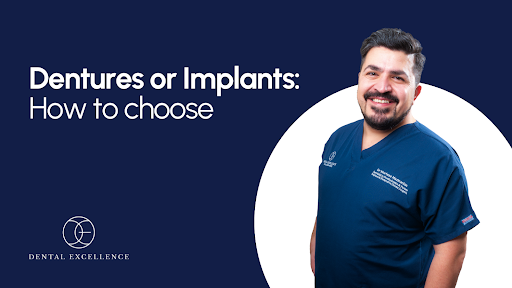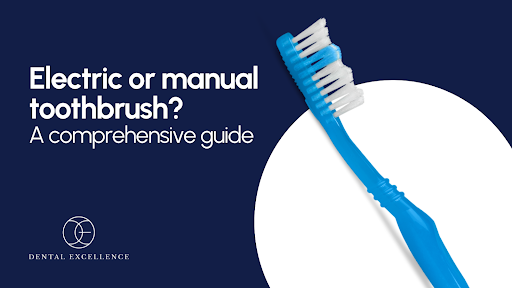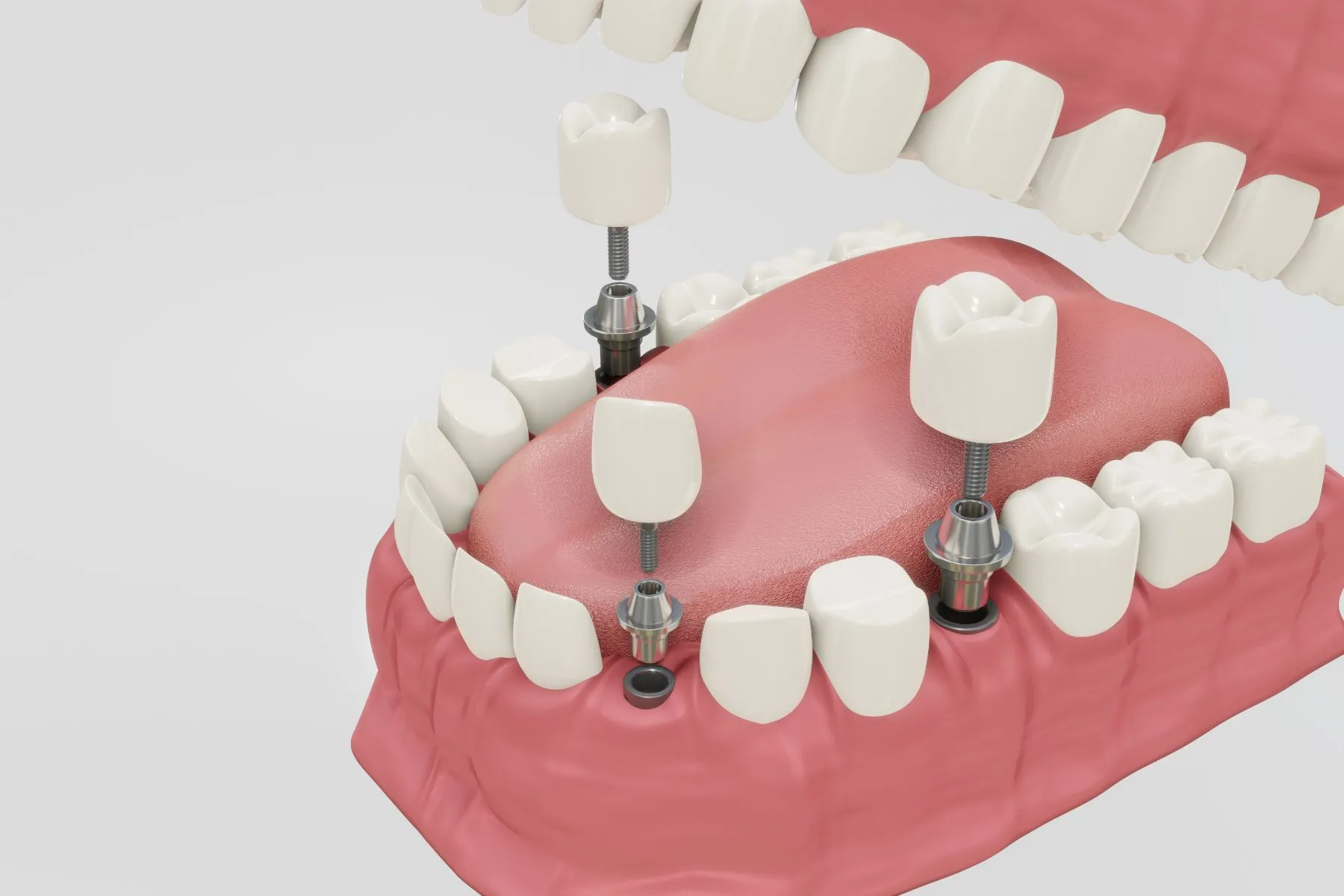If you’ve been considering dental implants, one of the first questions that might come to mind is, How long will a dental implant last? After all, it’s a big decision, both in terms of the procedure itself and the cost involved. The great news is that dental implants are designed to be a durable, long-term solution, often lasting a lifetime with proper care. But understanding the factors that affect their longevity can give you even more confidence as you decide whether implants are right for you.
In this article, we’re going to walk you through what makes dental implants so reliable, what you can expect in terms of how long they last, and most importantly, how you can ensure your implant remains in great shape for many years to come. Our goal is to give you peace of mind, knowing that you’re making a well-informed, lasting investment in your smile.
What makes dental implants so durable?
When you think of dental implants, it’s important to remember that they’re not just a temporary fix; they’re a permanent solution. But what makes them so strong and dependable?
1. Implant post
The base of the implant is made from titanium, a biocompatible material that actually fuses with your jawbone over time. This process, known as osseointegration, creates a sturdy, stable foundation that acts just like a natural tooth root.
2. Abutment
This is the small connector piece that attaches the implant to the crown, which can be replaced if needed over time without disturbing the implant post.
3. Crown
The part of the implant you see—the crown—looks and functions like your natural tooth. It’s custom-made to match the color and shape of your existing teeth, providing a seamless look and feel.
What makes this system so effective is that the implant is actually integrated into your bone, making it incredibly strong. In fact, it can last decades, and with good care, a lifetime.
How long do dental implants last?
The implant post itself, the part embedded in your jawbone, is designed to last a lifetime. That’s one of the biggest advantages of choosing implants over other tooth replacement options like bridges or dentures. Studies show that dental implants have a success rate of over 95%, and in many cases, patients enjoy their implants for decades without any issues.
However, it’s important to note that while the implant post is extremely durable, the crown—the visible part of the implant—may need to be replaced after 10 to 15 years due to normal wear and tear. Just like a natural tooth, it can wear down or chip over time, but replacing the crown is a straightforward process that doesn’t affect the stability of the implant itself.
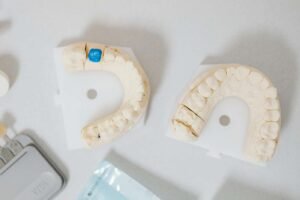
Factors that impact the longevity of dental implants
Now, you might be wondering, What can I do to make sure my implant lasts as long as possible? While dental implants are designed to be a long-term solution, their longevity depends on several factors. Let’s explore those factors and how they play a role in ensuring your implant stays in great shape.
1. Your oral hygiene habits
Good oral hygiene is key to maintaining your dental implants. Just as you care for your natural teeth, brushing twice a day, flossing, and using an antibacterial mouthwash are essential. If plaque and bacteria build up around the implant, it can lead to gum disease and even bone loss, which may compromise the stability of the implant. So, staying on top of your oral care routine is crucial.
2. Regular dental check-ups
While at-home care is essential, regular visits to your dentist are just as important. Your dentist will check your implant to make sure it’s still properly aligned and that your gums are healthy. Catching any potential issues early can make all the difference in ensuring your implant lasts for many years.
3. Overall health
Certain health conditions, like uncontrolled diabetes or osteoporosis, can affect how well your body heals and responds to the implant. For example, if your bone density is low, it might be harder for the implant to integrate with your jawbone. But don’t worry—your dentist will assess your overall health before recommending implants and may suggest a bone graft to strengthen your jawbone if necessary.
4. Avoiding smoking
If you smoke, it’s important to know that it can impact the success of your dental implant. Smoking reduces blood flow to the gums, which can slow down the healing process and increase the risk of infection or implant failure. Quitting smoking before and after your implant surgery can significantly improve the chances of long-term success.
5. Teeth grinding or clenching
If you tend to grind or clench your teeth, you may be putting extra pressure on your implant, which can wear it down faster. If this is something you experience, your dentist may recommend wearing a nightguard to protect both your implant and your natural teeth from the effects of grinding.
Who do dental implants fail?
Dental implants are a fantastic solution for missing teeth, providing both function and aesthetics that feel incredibly close to natural teeth. However, as with any dental treatment, there are instances where implants may not integrate successfully with the bone or fail over time. It’s important to understand the reasons why this can happen and how to prevent it.
One of the main causes of implant failure is related to injury or excessive pressure on the implant. Unlike natural teeth, implants lack the protective periodontal ligaments that cushion stress from chewing and biting. This means that repetitive force—especially from hard foods like nuts or crunchy snacks—can lead to micro-fractures or even bone loss around the implant over time. It’s crucial to be mindful of what you eat, especially in the months following surgery, to allow proper healing. Even after the implant feels normal, it takes around 18 months for the bone to fully integrate and strengthen, so moderation with harder foods is always a good idea.
Another common factor behind implant failure is poor oral hygiene. While dental implants don’t develop cavities, the tissues surrounding them are still vulnerable to infection. Natural teeth are supported by multiple types of fibers that tightly connect the gums to the tooth surface, providing a robust barrier against bacteria. In contrast, implants only have a couple of fiber types anchoring the gums, making them more susceptible to infections like peri-implantitis if not cared for properly. To avoid this, brushing and flossing diligently at least twice a day is essential, along with regular dental check-ups.
Systemic health conditions also play a role in the success of dental implants. Issues like osteoporosis, diabetes, or autoimmune diseases can negatively impact bone density or healing, increasing the likelihood of implant failure. For this reason, it’s important to work closely with your dentist to monitor both your implants and overall health. Yearly check-ups with x-rays can help ensure that your implants remain stable and that any potential issues are caught early.
In most cases, dental implants are a long-lasting, reliable solution, but they do require care and attention. By understanding the risks and taking steps to protect your oral health, you can enjoy the benefits of your dental implants for many years to come.
Why choosing the right dentist matters
Choosing the right dentist is one of the most important decisions you’ll make when considering dental implants, as it directly impacts how well the implant procedure will go and how long your implant will last. Dental implants are a long-term investment, and ensuring their success starts with the expertise and experience of your dentist.
A dentist who is highly trained in implantology will be able to carefully assess your individual needs, plan the procedure with precision, and place the implant in a way that promotes optimal healing. They will use advanced imaging technology, such as 3D scans, to map out the exact placement of the implant, avoiding any critical structures like nerves and sinuses, and ensuring the implant is placed at the right angle and depth. This level of precision reduces trauma to surrounding tissues, allowing for a faster and more comfortable recovery, and increasing the likelihood of the implant successfully integrating with your jawbone.
Moreover, an experienced dentist will know how to tailor the procedure to your specific anatomy and dental needs. Whether you need a bone graft to strengthen your jawbone or a particular type of implant, a skilled dentist will make the necessary adjustments to give you the best possible outcome. This attention to detail can mean the difference between an implant that lasts a lifetime and one that may encounter issues over time.
At our practice, we take pride in offering a personalized approach for every patient. We understand that each case is unique, and we’ll take the time to ensure you feel comfortable and informed throughout the entire process. From the initial consultation, where we discuss your options and address any concerns, to post-surgery care and follow-up visits, we’ll be with you every step of the way, making sure your dental implant not only meets but exceeds your expectations.
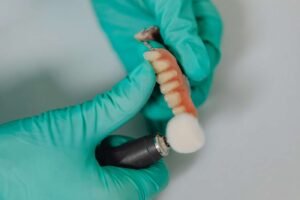
How to care for your dental implants
Once your dental implant is in place, maintaining it is much like caring for your natural teeth. Here are a few simple steps to keep your implant in great shape:
Brush and floss daily
It’s important to brush your teeth at least twice a day, paying close attention to the area around the implant. Flossing daily can help remove food particles and plaque from hard-to-reach places.
Use mouthwash
Incorporating an antibacterial mouthwash into your routine can help reduce the risk of infection and keep your gums healthy.
Visit your dentist regularly
Keeping up with your regular dental check-ups allows your dentist to monitor the health of your implant and catch any potential issues early.
Avoid smoking
If you can, try to avoid smoking altogether. As mentioned earlier, smoking can compromise the success of your implant by slowing down the healing process and increasing the risk of infection.
Wear a nightguard if needed
If you grind your teeth, a nightguard can protect both your implant and your natural teeth from unnecessary wear and tear.
Frequently asked questions about dental implants
1. Will a dental implant feel like my natural tooth?
Yes, one of the major benefits of dental implants is that they feel and function just like natural teeth. Once your implant has healed and the crown is placed, you can chew, speak, and smile without worrying about your tooth shifting or moving. Many patients forget they even have an implant because it feels so natural.
2. How long will the healing process take?
After the implant is placed, it generally takes about three to six months for the implant to fully fuse with your jawbone in a process called osseointegration. During this time, you may be given a temporary crown to wear. Once the implant has fully integrated, your dentist will place the permanent crown.
3. What if my implant gets damaged?
While the implant post is designed to last a lifetime, the crown on top can wear down or get damaged over time, just like a natural tooth. If this happens, your dentist can easily replace the crown without affecting the implant post.
4. Are dental implants worth the cost?
Absolutely. While the upfront cost of dental implants may seem high, they offer a long-term solution that’s well worth the investment. Unlike dentures or bridges, implants are permanent, look natural, and require little maintenance. Plus, they help preserve your jawbone and overall oral health, which can save you from costly dental procedures down the road.
5. Can dental implants fail?
Dental implants have an exceptionally high success rate, but in rare cases, failure can occur. Factors like poor oral hygiene, smoking, or underlying health conditions can increase the risk of implant failure. That’s why it’s important to follow your dentist’s aftercare instructions and maintain regular dental visits.
Dental Implants – A lasting investment in your smile
Choosing dental implants is more than just restoring a missing tooth; it’s about investing in your confidence, comfort, and long-term oral health. With proper care and a commitment to maintaining good oral hygiene, your dental implant can last a lifetime, giving you a beautiful, functional smile for years to come.
If you’re ready to take the next step, we’re here to answer any questions you might have and help you make the best choice for your dental health. You deserve a smile that lasts—one that you can feel proud of every day.


